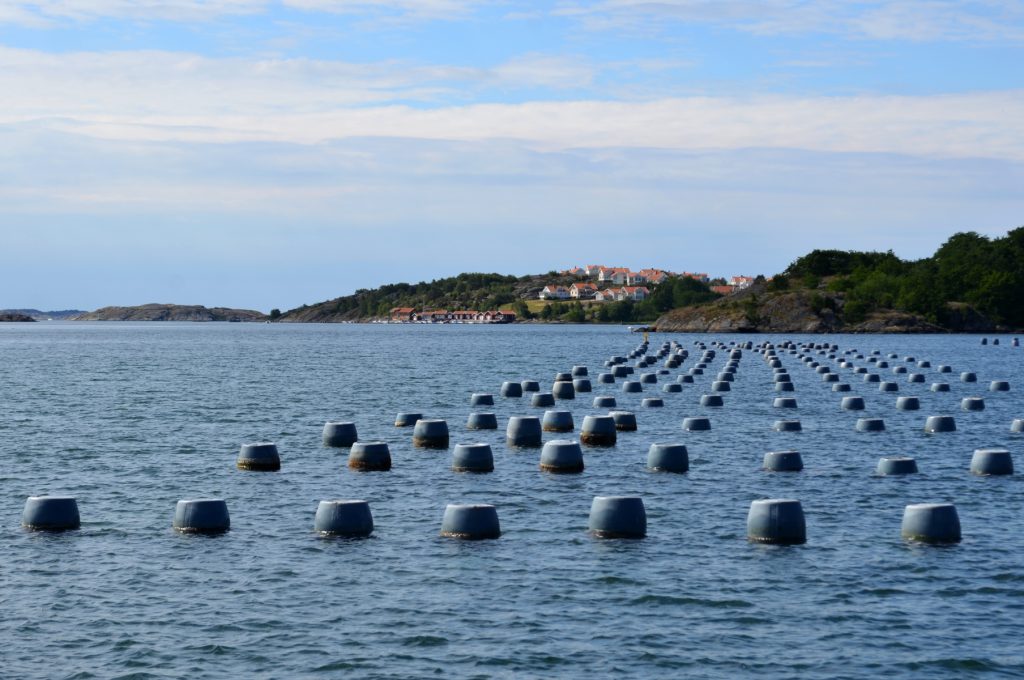Maritime businesses in the west Sweden
On the 4th of June 2020, 15 people from 6 different municipalities on the west coast of Sweden gathered in an online meeting within the framework of the Land-Sea-Act project. The participants represented both business developers and planners from the municipalities.
The aim of the meeting was twofold. Partly, to present the results from an interview study conducted with 130 maritime businesses in the region and partly to discuss more widely the preconditions for blue growth and development of maritime businesses in the region.
Interview study with maritime businesses
The interview study was conducted in January-February 2020 and is based on a similar study conducted by Business Region Göteborg (BRG) in 2014. The study is a first step in examining the maritime businesses' needs regarding competence, collaboration, land as well as their own views on existing conditions for business development.
The maritime industry consists of a range of different sectors which in many cases have very different preconditions. In the study, the responding companies represented a range of sectors such as transport, maritime technology and production, food industry and leisure and tourism. There were however areas where the companies' responses point in the same direction, which indicates that there are areas where joint efforts can be of great benefit. For example, the need for land and access to quay, local collaboration and competence supply are crucial for many of the companies in the study for them to develop. Full report "Maritime businesses in the Gothenburg Region 2020" is available here
The participating municipalities also gave their reflections on the study and what parts could be interesting to further develop. Many of the municipalities were interested in a more in-depth picture of the need for land. For example within which sectors the need is biggest and what type of land the companies need and if their need also covers the sea-area. Another reflection is that a specific characteristic of maritime businesses is the (marine) place dependence, which goes hand in hand with the dependence on ecosystem services of a certain place.
Regarding the need for competence, some of the participants stated that it would be interesting to connect to the companies’ revenue or profitability to see if the need for competence matches the actual possibility to employ. Also, one of the participants mention that many of the businesses have few employees and a tradition of working together, so one solution can be to share competence between companies.

View on the mussle farm
Prerequisites for developing maritime businesses
During the last part of the meeting the participants had been asked to share their reflections on a few questions regarding prerequisites for developing the maritime businesses in the region and what type of knowledge is needed.
Many of the participants pointed to the need to diversify the knowledge and the view on the maritime industry. It consists of a range of sectors with different needs and possibilities. For example, when it comes to the need for land and premises, the need can vary a lot depending on type of maritime business. The participants also recognized the importance of viewing the access to land and premises on a regional level as is done by the Gothenburg Region.
As in the interview study, the specific importance of ports and quays was highlighted by the participants. Ports can be developed to be multifunctional areas, with different types of public and commercial services, but also include a level of flexibility to fit different events or activities. Connected to the importance of ports is also the overall accessibility to, and along the coast. This is crucial for the tourism industry but also for most other sectors in the maritime businesses. Many of the participants also mention the importance of infrastructure, both transport infrastructure and digital infrastructure, as a prerequisite for development of maritime businesses.
One pervading theme in the discussion was also overall sustainability and the significance of acknowledging and valuing the ecosystem services in the marine and coastal areas. The ecosystem services are in most cases the very foundation of the maritime businesses and their ability to develop. To improve the strategic planning in the coastal areas and reach the full potential for blue growth, planning needs to include a business perspective. However, biodiversity and healthy ecosystems is, as stated, a prerequisite for a sustainable maritime industry and needs to be an overarching aim for maritime spatial planning. The stakeholders in the workshop saw a need to increase their knowledge further both regarding the needs of the maritime industry and the state and effects of different activities on the marine ecosystems.
Read more about Swedish case - elaboration of Gothenburg regional maritime strategy here.
Prepared by Ida Lindbergh (Gothenburg Region) /December 2020/

